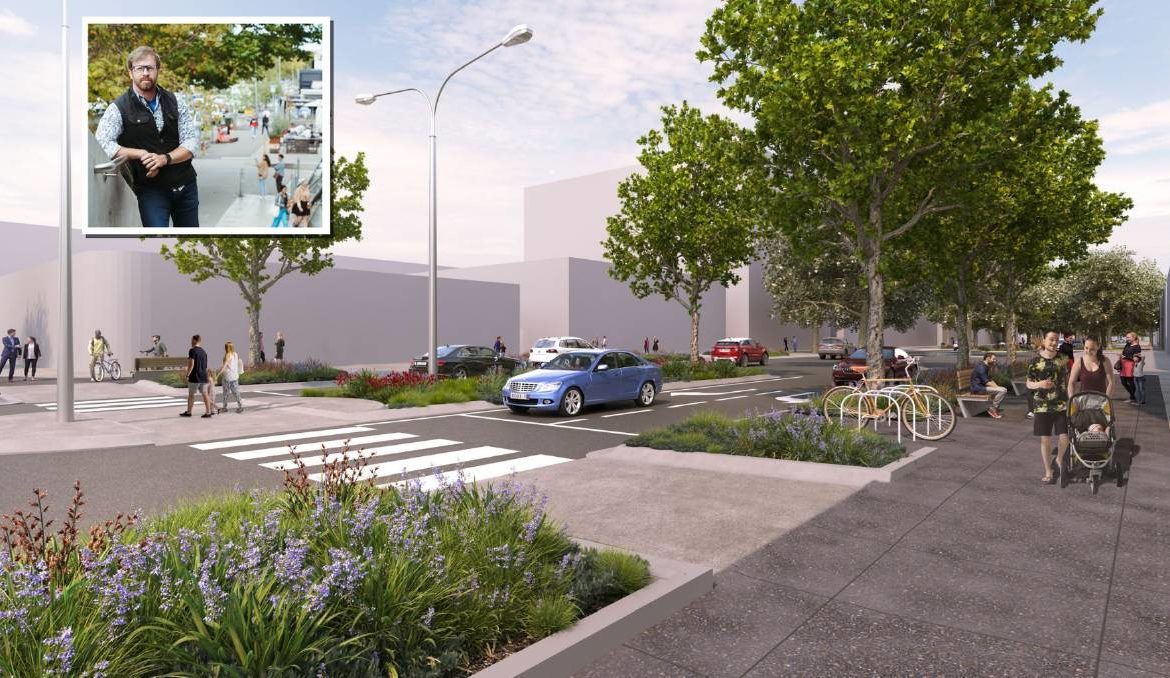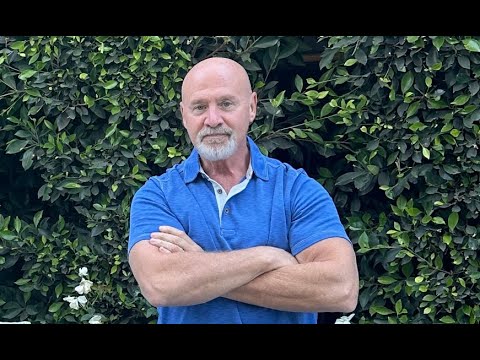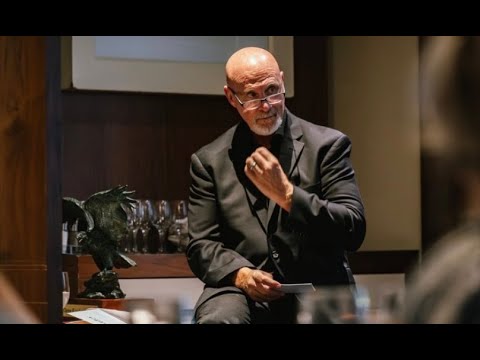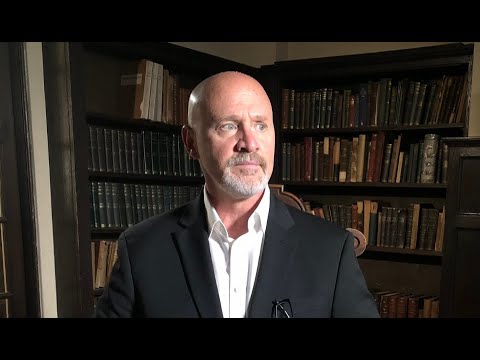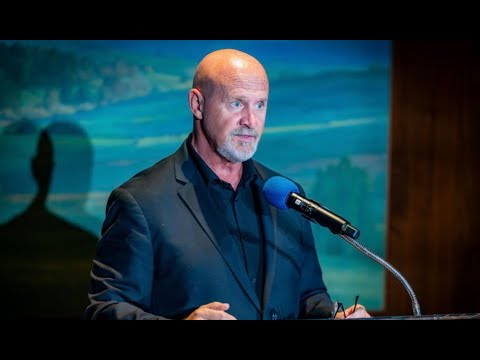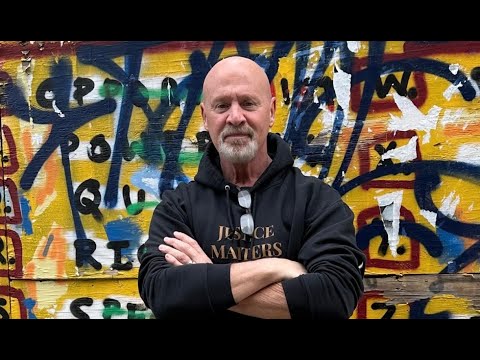news, latest-news, girrawheen street, braddon, braddon upgrades, lonsdale street, parking, act government, rent prices
Business owners in one of Canberra’s busiest inner-city suburbs are concerned Braddon’s Lonsdale Street precinct has become a victim of its own success, with rental prices driving businesses away. There are also fears a new plan to reduce the number of carparks in the popular shopping and dining precinct will damage the viability of businesses in the street, where rents are higher than some of the most popular streets in Sydney or Melbourne. At least five shopfronts are currently unoccupied on Lonsdale Street, and a little-known levy on commercial real estate in the area paid to the ACT government is thought to be responsible for forcing up rental prices. Several Lonsdale Street business owners have voiced concerns landlords are quietly passing down the cost of the levy through exorbitant rent, while its promised rewards aren’t being felt. Introduced in 2007, the fee is paid by landlords in Braddon’s retail precinct, as well as commercial property owners in Civic and Acton, contributing to the cost of extra marketing, street cleaning and events in their neighbourhoods. The levy is worth $2.1 million on average each year to the ACT government and smaller Lonsdale Street retailers are calling for it to be scrapped to prevent big chains from being the only businesses able to afford a spot in the city. Levy payer and Lonsdale Street business owner Damien Maher said the levy was no longer relevant to businesses in Braddon. “The City Renewal Authority says it’s paying for street sweeping and maintenance and graffiti clean up, well that’s what we pay rates for,” Mr Maher said. In 10 years on Lonsdale Street, Mr Maher said he’d never seen an active street sweeping program in Braddon and what the suburb needed was more parking, not Haig park activations. “For the businesses to directly benefit from events they need to happen here, on the sidewalks, in the streets, it has to have people coming to Braddon moving into the shops to buy things, there’s been nothing really that has achieved that,” he said. A proposed development of Lonsdale Street designed to make it more accessible, attractive and safer, includes plans to remove 25 car spaces. Braddon business spokesman Kel Watt said the plan had initially been given a budget of $9.6 million, so the $4 million upgrade put forward this month could fall short. “We were also led to believe it would be starting around Easter and that’s come and gone. There’s talk now that it’ll be Christmas or even early New Year,” he said. Mr Watt said there was unlikely to be resistance to two new pedestrian crossings and additional seating for alfresco dining, however, if car spaces were removed accessibility should be considered. “The way they’re designing things is by having people park on the north side of Haig Park into Mort Street and Cooyong, then into Civic,” he said. “Having people park in Civic is not great for business. Mr Watt said encouraging people to park in Mort Street would be good for businesses there, who are currently not getting the foot traffic. Canberra lost the Vegan Grocery Store due to the cost of renting in Braddon in late 2019. The Canberra Times is aware of at least one other store that closed recently, reporting the high price of rent as a contributing factor. Vegan Grocery Store director Jess Bailey also owns outlets in Sydney’s Glebe Point Road and Melbourne’s Brunswick Street, but said the rent in Lonsdale Street exceeded both those places. Faced with the unaffordable price in Canberra, she chose nearby Mort Street for the outlet, but the boutique grocery store was still forced to close down two years into a three year lease due to a lack of foot traffic. “Braddon should be a really vibrant, thriving hub but instead all the small businesses are getting squeezed out and the only people who can afford to rent there are the shopping malls so it just becomes like another shopping mall,” Ms Bailey said. “If you want to be in Braddon the only way you can afford to be is to be on a backstreet but the backstreets just aren’t happening. “It’s really sad, because it has so much potential.” Some retailers at the northern end of Lonsdale Street are currently paying just under $5000 a month in rent. Their landlords’ City Centre Marketing and Improvements Levy is calculated based on the value of their property and the location of their real estate. The collection area is split into two areas, Zone A takes in the retail precinct of the city, bounded by Braddon, Cooyong Street and Barry Drive. They pay 0.29 per cent of the value of their property. Zone B includes Braddon’s shopping strip and commercial property between London Circuit and Cooyong Street, as well as the area west of the CBD. They pay 0.21 per cent of their property value annually. Colliers real estate executive Caleb Brinton said the cost of holding commercial property in general, whether for Braddon owners or tenants, was the bigger concern. “Tenants generally get the same raw deal that the landlord is getting,” Mr Brinton said. Mr Brinton pointed to a more than 30 per cent increase in commercial rates since 2015-16 as driving up the high cost of doing business. He said while there was not one solution to ensure leasing in the CBD remained appealing to independent business owners, incentives should be considered. “I think the ACT government should consider incentivising owners and business owners to activate these areas as they are integral to how the city operates,” Mr Brinton said. An ACT government spokesperson said while the CCMIL [City Centre Marketing and Improvements Levy] had an important role in helping make the city centre Canberra’s premium destination, it was only one of the funding sources used by the authority in its renewal program. “Ongoing engagement and consultation with CCMIL payers are critical components of setting priorities for how CCMIL funds will be spent,” the spokesperson said. “All CCMIL payers are invited to participate in an annual priority setting workshop to seek their valuable input and shape future priorities. “The City Renewal Authority has also established a CCMIL Advisory Panel of CCMIL payers which meets quarterly. “The panel functions as an advisory body to the Authority in supporting the management of the levy’s application and the associated program of funded initiatives.” In 2019/20, levy funds totalled $3.2 million after a top up of unspent funds from previous inner-city levy collector, In the City Canberra. The City Renewal Authority spent just over half of its budget during the last reporting year due to the impacts of the bushfires and pandemic on events and activations. A third of that went to cleaning and maintenance, including the purchase of a street scrubber and the employment of staff for planting and cleaning. According to a government spokesperson, many events and activities scheduled for 2020 were cancelled due to the impacts of COVID-19. As a result, $1.6 million was unspent and was carried over to the 2020-21 financial year. “The engagement with CCMIL payers in 2019-20 focused on how the CCMIL could be better used to support business considering the impacts of the recent bushfires and current health emergency,” the spokesperson said. READ ALSO: “ACT Government has decided to waive 50 per cent of the annual levy for the 2020/21 financial year as part of COVID-19 stimulus measures to support businesses. “As a result, the total levy collected for 2020-21 financial year is $1.1 million with a total budget in 2.7 million.” In the financial year ending June 30, more than $800,000 was budgeted for street cleaning, $630,000 for events and more than $330,000 for marketing. The rest went to grants, capital works, safety initiatives and “performance and accountability”. Our journalists work hard to provide local, up-to-date news to the community. This is how you can continue to access our trusted content:
/images/transform/v1/crop/frm/XBxJDq6WLub2UphQ8wEq23/58bd54e9-633a-4dce-9b69-d3744e3570c1.png/r4_0_1795_1012_w1200_h678_fmax.jpg
Business owners in one of Canberra’s busiest inner-city suburbs are concerned Braddon’s Lonsdale Street precinct has become a victim of its own success, with rental prices driving businesses away.
There are also fears a new plan to reduce the number of carparks in the popular shopping and dining precinct will damage the viability of businesses in the street, where rents are higher than some of the most popular streets in Sydney or Melbourne.
At least five shopfronts are currently unoccupied on Lonsdale Street, and a little-known levy on commercial real estate in the area paid to the ACT government is thought to be responsible for forcing up rental prices.
Several Lonsdale Street business owners have voiced concerns landlords are quietly passing down the cost of the levy through exorbitant rent, while its promised rewards aren’t being felt.
Introduced in 2007, the fee is paid by landlords in Braddon’s retail precinct, as well as commercial property owners in Civic and Acton, contributing to the cost of extra marketing, street cleaning and events in their neighbourhoods.
The levy is worth $2.1 million on average each year to the ACT government and smaller Lonsdale Street retailers are calling for it to be scrapped to prevent big chains from being the only businesses able to afford a spot in the city.
A landscaped mid-block pedestrian crossing would “allow safer connections”. Picture: Supplied
Levy payer and Lonsdale Street business owner Damien Maher said the levy was no longer relevant to businesses in Braddon.
“The City Renewal Authority says it’s paying for street sweeping and maintenance and graffiti clean up, well that’s what we pay rates for,” Mr Maher said.
In 10 years on Lonsdale Street, Mr Maher said he’d never seen an active street sweeping program in Braddon and what the suburb needed was more parking, not Haig park activations.
“For the businesses to directly benefit from events they need to happen here, on the sidewalks, in the streets, it has to have people coming to Braddon moving into the shops to buy things, there’s been nothing really that has achieved that,” he said.
A proposed development of Lonsdale Street designed to make it more accessible, attractive and safer, includes plans to remove 25 car spaces.
“We were also led to believe it would be starting around Easter and that’s come and gone. There’s talk now that it’ll be Christmas or even early New Year,” he said.
Mr Watt said there was unlikely to be resistance to two new pedestrian crossings and additional seating for alfresco dining, however, if car spaces were removed accessibility should be considered.
“The way they’re designing things is by having people park on the north side of Haig Park into Mort Street and Cooyong, then into Civic,” he said.
“Having people park in Civic is not great for business.
Mr Watt said encouraging people to park in Mort Street would be good for businesses there, who are currently not getting the foot traffic.
Canberra lost the Vegan Grocery Store due to the cost of renting in Braddon in late 2019. The Canberra Times is aware of at least one other store that closed recently, reporting the high price of rent as a contributing factor.
Vegan Grocery Store director Jess Bailey also owns outlets in Sydney’s Glebe Point Road and Melbourne’s Brunswick Street, but said the rent in Lonsdale Street exceeded both those places.
Faced with the unaffordable price in Canberra, she chose nearby Mort Street for the outlet, but the boutique grocery store was still forced to close down two years into a three year lease due to a lack of foot traffic.
“Braddon should be a really vibrant, thriving hub but instead all the small businesses are getting squeezed out and the only people who can afford to rent there are the shopping malls so it just becomes like another shopping mall,” Ms Bailey said.
“If you want to be in Braddon the only way you can afford to be is to be on a backstreet but the backstreets just aren’t happening.
“It’s really sad, because it has so much potential.”
The collection area is split into two areas, named Zone A and Zone B. Picture: Supplied
Some retailers at the northern end of Lonsdale Street are currently paying just under $5000 a month in rent.
Their landlords’ City Centre Marketing and Improvements Levy is calculated based on the value of their property and the location of their real estate.
The collection area is split into two areas, Zone A takes in the retail precinct of the city, bounded by Braddon, Cooyong Street and Barry Drive. They pay 0.29 per cent of the value of their property.
Zone B includes Braddon’s shopping strip and commercial property between London Circuit and Cooyong Street, as well as the area west of the CBD. They pay 0.21 per cent of their property value annually.
Colliers real estate executive Caleb Brinton said the cost of holding commercial property in general, whether for Braddon owners or tenants, was the bigger concern.
“Tenants generally get the same raw deal that the landlord is getting,” Mr Brinton said.
Mr Brinton pointed to a more than 30 per cent increase in commercial rates since 2015-16 as driving up the high cost of doing business.
He said while there was not one solution to ensure leasing in the CBD remained appealing to independent business owners, incentives should be considered.
“I think the ACT government should consider incentivising owners and business owners to activate these areas as they are integral to how the city operates,” Mr Brinton said.
Renders show new furniture would include benches, bike racks and litter bins. Picture: Supplied
An ACT government spokesperson said while the CCMIL [City Centre Marketing and Improvements Levy] had an important role in helping make the city centre Canberra’s premium destination, it was only one of the funding sources used by the authority in its renewal program.
“Ongoing engagement and consultation with CCMIL payers are critical components of setting priorities for how CCMIL funds will be spent,” the spokesperson said.
“All CCMIL payers are invited to participate in an annual priority setting workshop to seek their valuable input and shape future priorities.
“The City Renewal Authority has also established a CCMIL Advisory Panel of CCMIL payers which meets quarterly.
“The panel functions as an advisory body to the Authority in supporting the management of the levy’s application and the associated program of funded initiatives.”
In 2019/20, levy funds totalled $3.2 million after a top up of unspent funds from previous inner-city levy collector, In the City Canberra.
The City Renewal Authority spent just over half of its budget during the last reporting year due to the impacts of the bushfires and pandemic on events and activations.
A third of that went to cleaning and maintenance, including the purchase of a street scrubber and the employment of staff for planting and cleaning.
According to a government spokesperson, many events and activities scheduled for 2020 were cancelled due to the impacts of COVID-19.
As a result, $1.6 million was unspent and was carried over to the 2020-21 financial year.
“The engagement with CCMIL payers in 2019-20 focused on how the CCMIL could be better used to support business considering the impacts of the recent bushfires and current health emergency,” the spokesperson said.
“ACT Government has decided to waive 50 per cent of the annual levy for the 2020/21 financial year as part of COVID-19 stimulus measures to support businesses.
“As a result, the total levy collected for 2020-21 financial year is $1.1 million with a total budget in 2.7 million.”
In the financial year ending June 30, more than $800,000 was budgeted for street cleaning, $630,000 for events and more than $330,000 for marketing.
The rest went to grants, capital works, safety initiatives and “performance and accountability”.
Our journalists work hard to provide local, up-to-date news to the community. This is how you can continue to access our trusted content:

